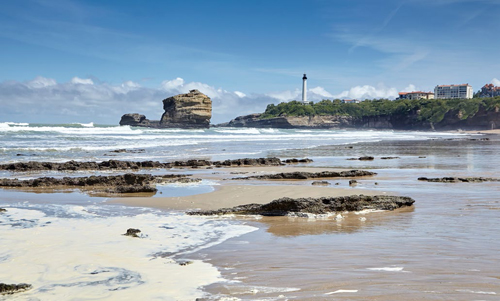Prospects for the Biarritz Summit
The 45th annual G7 summit, on 24–26 August 2019 in Biarritz on France’s Atlantic coast, comes when the climate change crisis has reached a critical stage, when the established multilateral liberal order is under assault and when growing populism, protectionism, provincialism and doubts about democracy tempt many to turn inward to temper the inequalities that some aspects of globalisation have intensified at home.
G7 leaders will address the ambitious goals that French president Emmanuel Macron as host has set. Under the theme of fighting inequalities, they will focus on five priorities. The first is enhancing equality of opportunity through gender equality, access to education and high-quality health services. The second is environmental equality through climate finance, a fair ecological transition, the oceans and biodiversity. The third is more fair and equitable trade, tax and development policies. The fourth is promoting peace, amid security threats and terrorism. And the fifth is seizing the opportunities offered by digital technology
and artificial intelligence.
International reform
The Biarritz Summit will also address reforming the world’s major international institutions, notably the World Trade Organization and the International Labour Organization (on its 100th anniversary), and the United Nations and the Organisation for Economic Co-operation and Development, where new powers have a greater place. It will consider the role of non-state actors and seek to improve its partnership with Africa.
G7 leaders will also address key security issues such as nuclear proliferation in Iran and North Korea; regional security risks in Ukraine, the Baltics, the Middle East and North Africa, Venezuela and Asia; maritime safety in many regions; terrorism; crime and corruption; and violations of democracy and human rights.
Macron, at his third G7 summit, will host many fellow G7 veterans. Germany’s Chancellor Angela Merkel will attend her 14th. Japanese prime minister Shinzo Abe will be at his eighth, having just hosted the G20’s Osaka Summit in June. Canadian prime minister Justin Trudeau will come for his fourth summit, having hosted the G7 at Charlevoix in June 2018 and approaching an election on 21 October 2019. US president Donald Trump will be at his third summit, facing the presidential election in November 2020, and anticipating hosting the next G7 summit in late spring 2020. Italian prime minister Giuseppe Conti will be at his second. The United Kingdom’s new prime minister Boris Johnson will be preoccupied with the UK’s scheduled withdrawal from the European Union in October. The European Union will send veterans Donald Tusk and Jean-Claude Juncker.
France also has invited the leaders of several other powers. The first set consists of key democratic partners from other global regions: India’s prime minister Narendra Modi, Australia’s prime minister Scott Morrison, South Africa’s president Cyril Ramaphosa and Chile’s president Sebastian Piñera. The second set comprises African leaders: Egypt’s president Abdel Fattah El-Sisi, Senegal’s Macky Sall, Rwanda’s Paul Kagame, Burkina Faso’s Roch Marc Kaboré as chair of the G5 Sahel and African Union Commission chair Moussa Faki.
Supporting the leaders are seven pre-summit ministerial meetings covering nine portfolios: foreign affairs and interior on 5–6 April; environment on 5–6 May; gender on 9–10 May; health on 16–17 May; labour on 7 June; development and education on 4–5 July; and finance and central bank governors on 17–18 July. Inputs also come from an energetic civil society led by engagement groups for business, labour, civil society, women, youth, science and think tanks.
Likely outcomes
With such supports, the Biarritz leaders will likely produce a summit of at least solid success across all the priorities France has set. On gender equality, their summit will advance the legal status of women in the lead-up to the UN’s Beijing+25 conference next year and mobilise money for women’s financial inclusion in developing countries. On education and health, it will boost the desired 15% funding increase for the Global Fund to Fight HIV, Malaria and Tuberculosis and strengthen the response to the Ebola outbreak in the DR Congo after the recent shock of its spread to Goma. On the environment, all members but the United States will promise to implement and improve the Paris Agreement on climate change, support the UN Climate Action Summit in September and bolster biodiversity, while US resistance will constrain the needed response to the extreme heat, floods and wildfires now reaching new peaks around the world. There will be important agreements on proportionally fair and minimum digital taxation and efforts to regulate the cryptocurrencies introduced by private giants, lest they undermine the protections provided to citizens by their sovereign states. G7 leaders and their partners will also protect their democratic elections from internal interference, curb social media use for violent extremism, and narrow their differences over the threats to democracy and human rights from Iran, Russia and China.












